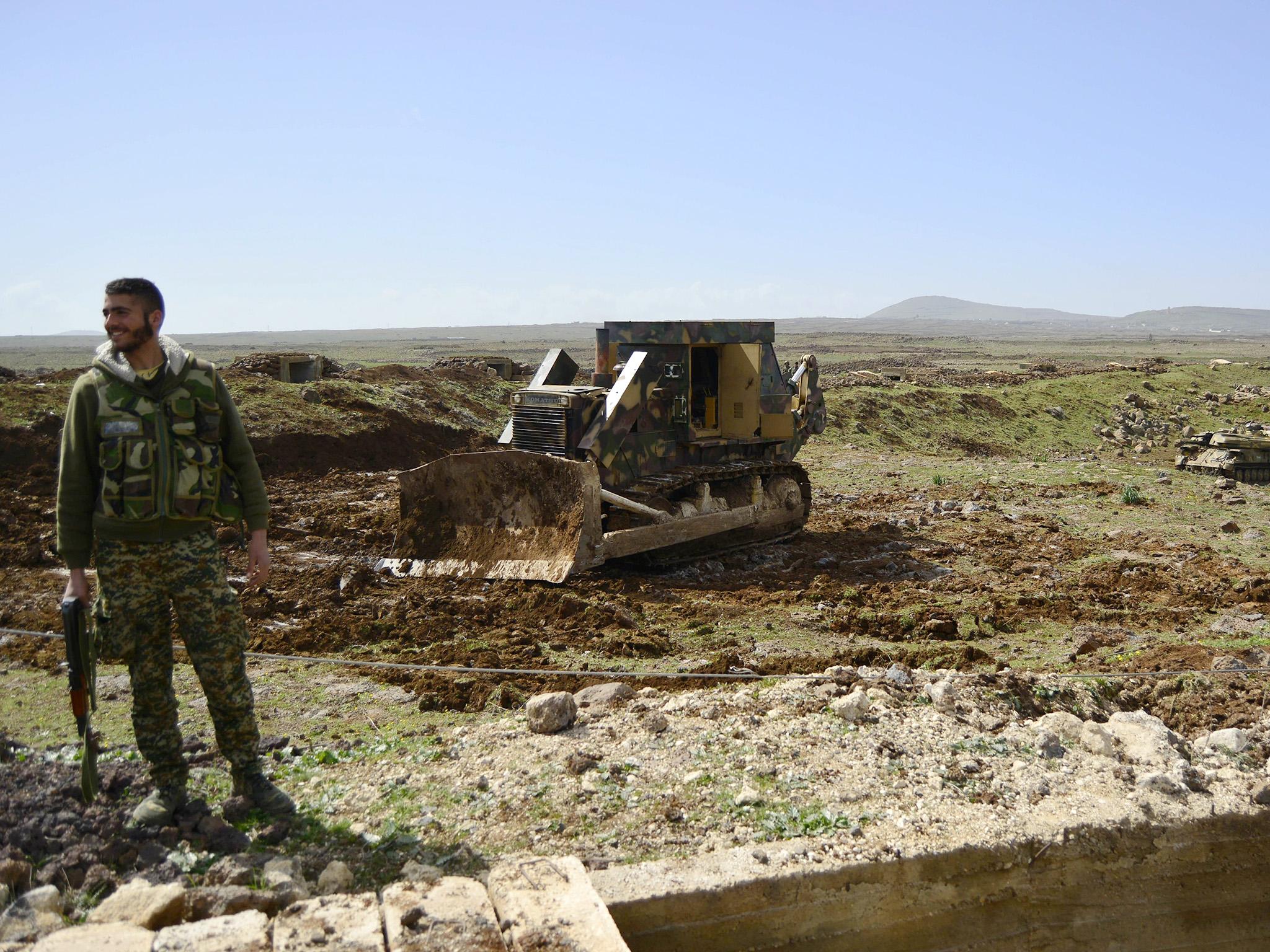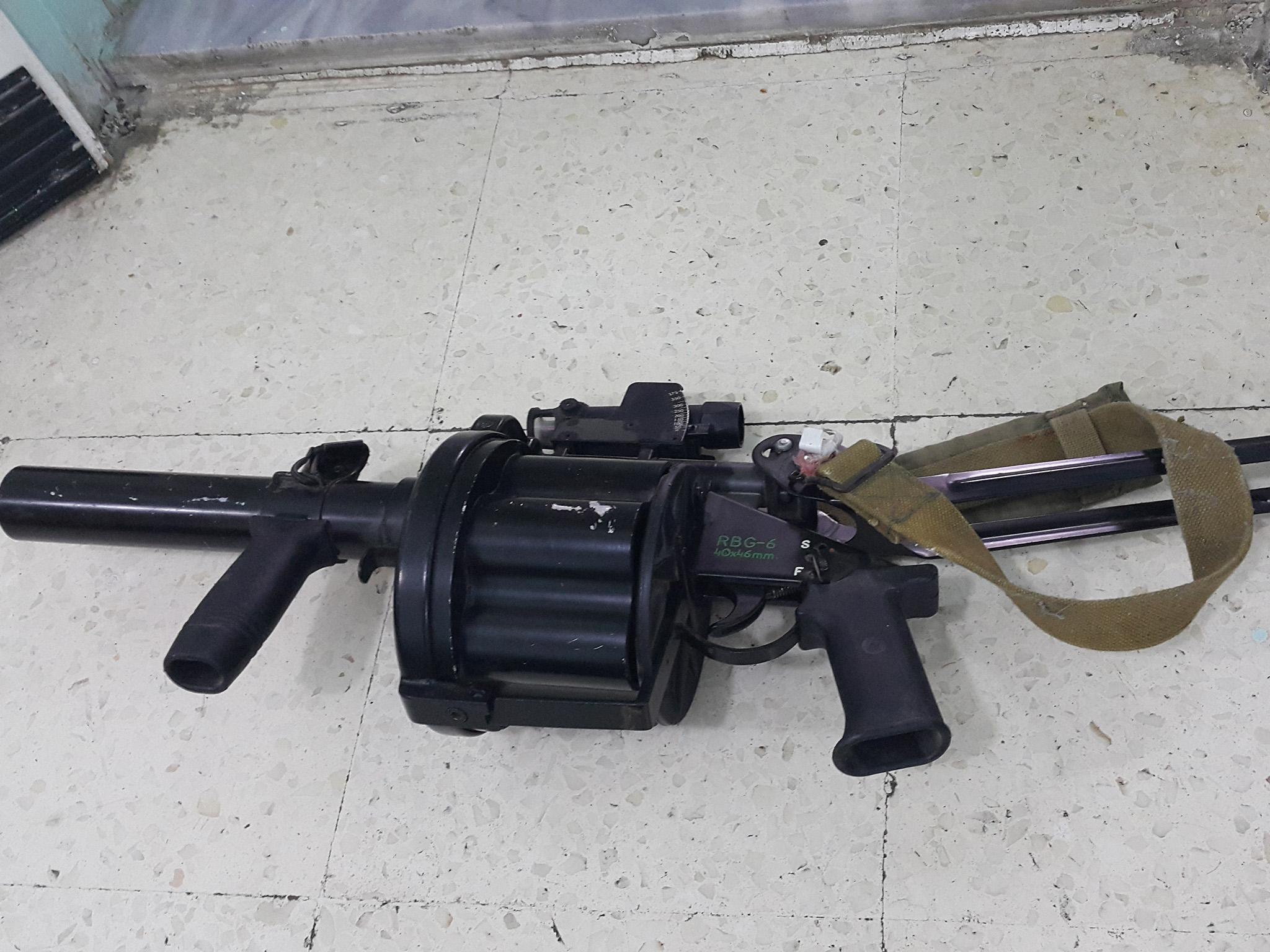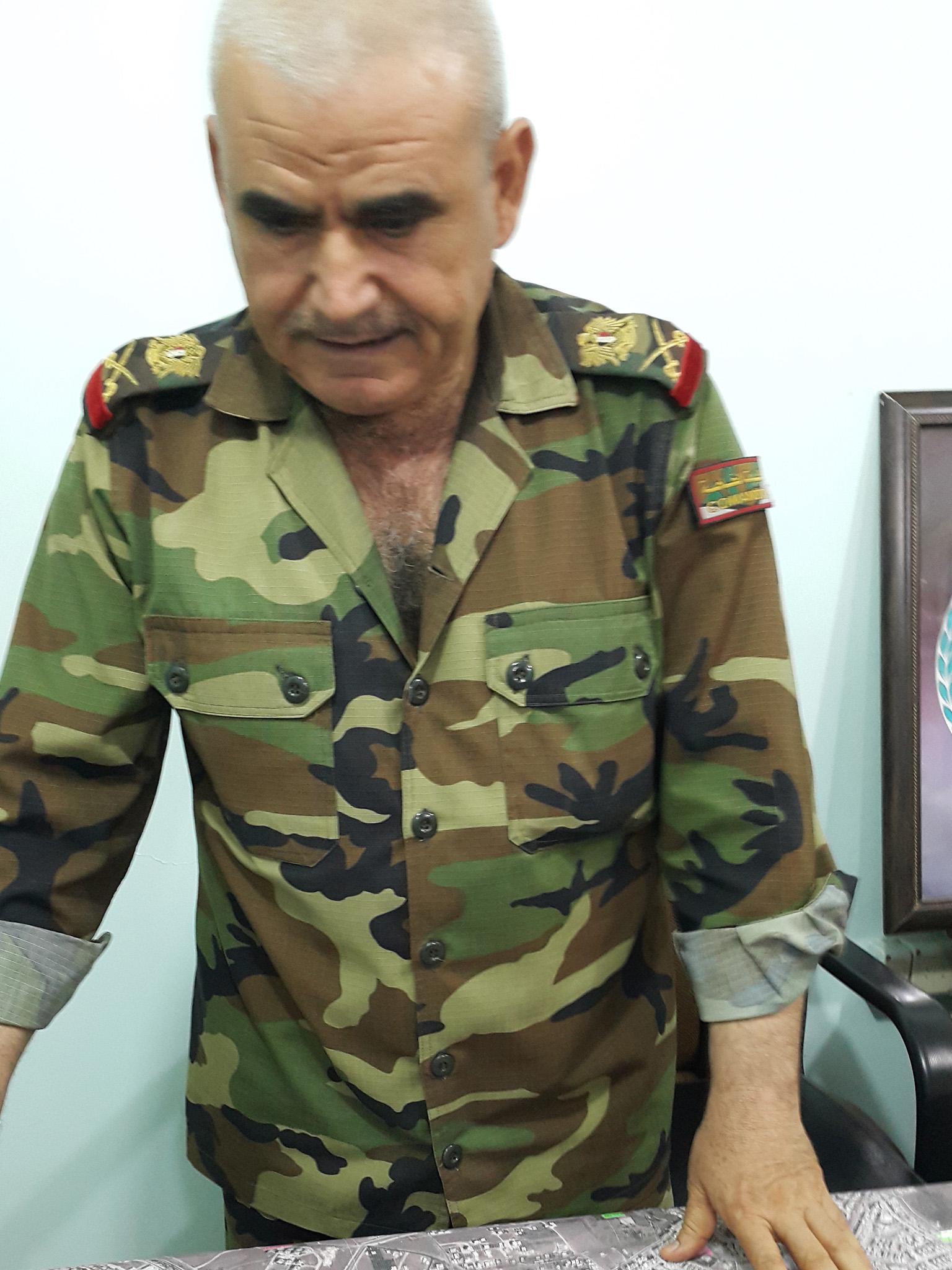Welcome to Dera'a, Syria's 'graveyard of terrorists'
The city in southern Syria, once the centre of fierce fighting in the country’s civil war, is now triumphantly claimed to be back in government control. But, as Robert Fisk reports, the city’s war-weary occupants are not counting on peace just yet

Your support helps us to tell the story
From reproductive rights to climate change to Big Tech, The Independent is on the ground when the story is developing. Whether it's investigating the financials of Elon Musk's pro-Trump PAC or producing our latest documentary, 'The A Word', which shines a light on the American women fighting for reproductive rights, we know how important it is to parse out the facts from the messaging.
At such a critical moment in US history, we need reporters on the ground. Your donation allows us to keep sending journalists to speak to both sides of the story.
The Independent is trusted by Americans across the entire political spectrum. And unlike many other quality news outlets, we choose not to lock Americans out of our reporting and analysis with paywalls. We believe quality journalism should be available to everyone, paid for by those who can afford it.
Your support makes all the difference.Into the brigadier’s general’s office, a sergeant carried a heavy, black-painted grenade launcher and placed it on the floor. A big brute of a thing, it could fire grenade cartridges on automatic and bore not a scratch on its surface. Brand new and with the coding “RBG-6 40-46mm grenade” stamped on to the butt, it made a nice piece of kit for a guerrilla army. “Israeli!” proclaimed General Ali Ahmad Asa’ad, scrutinising the gun as if for the first time.
Captured in a recent battle for the village of Atman – three Syrian soldiers dead, an unknown number of what the Syrian army call “terrorists” killed in the operation – it was clearly a prize possession. But the gun’s coding showed clearly that it was made in Croatia. And just how it reached the suburbs of Dera’a remains a bit of a mystery. According to Gen Asa’ad – no relation to the president and besides, his name is pronounced differently – these weapons come either from a rebel military operation centre on the Jordanian side of the border or are given to the Jabhat al-Nusra fighters by Israelis on the Syrian-Israeli border to the north-west.
More ominously, perhaps, is the coordination centre across the Jordanian frontier. Gen Asa’ad protests about what he calls an “open border” and says he destroyed two radio posts for the Jordanian-based rebel coordinators. “We killed 40 per cent of the terrorists – because they were too frightened to fight without their leaders. During the battle, our army killed Zaher Aboud, leader of the Fallujet Houran terrorists and Emile Aboud who called himself Emile Rahme, who lived in the region of Dera’a itself.”
Gen Asa’ad maintains contact via Syrian army intelligence with the Jordanian military, although just how much this achieves is unclear. Yet the general blossoms with optimism of the 90 per cent variety. “We had two Russian experts came here to see us last week and I told them that all the terrorists in the world should come to Dera’a and it will be a graveyard for them. When their leaders tried to meet here, we said, ‘Dera’a is not [rebel] Idlib’. That’s how after ‘Operation Southern Storm’, we control 90 per cent of the city.”
The map of Dera’a, which the general holds in his hand, suggests the figure may be nearer 70 per cent. The pink squares indicating Syrian military control clearly outnumber the blue for the opposition and the government holds all the major civic institutions, the governor’s office and the vast sports stadium, which just happens to be 58-year old General Asa’ad’s brigade headquarters. The north of the city is divided from the rebel south by the Zaidiyah valley and in that loop of land that veers south towards the Jordanian border are remnants of the old Free Syrian Army (FSA) – the original government army defectors in whom the West once placed such faith in overthrowing the Assad regime – and the Shebab al-Sunna Brigade and even the 17th March Brigade, a name which the general mentions without explanation.

For 17 March 2011 was the date on which the uprising against the regime originally started in Dera’a after government intelligence officers beat and killed several boys who had scrawled anti-government graffiti on the walls of the city. Dera’a thus occupies a strategic position in the narrative of the Syrian uprising, although the remains of the international ceasefire still lie like a fragile blanket over the city. Gen Asa’ad agrees that his soldiers open fire on their antagonists only if they are shot at.
Thus we can drive around this city – site of the infamous railway station in which Lawrence of Arabia was assaulted by a Turkish Ottoman officer in the First World War – and witness war at a standstill. The familiar ramparts of earth and muck of all civil conflicts block the city’s wide boulevards with their four-storey villas and shops. Syrian checkpoints search civilians travelling from the rebel-held territory but allow them free entrance to the government-held centre and north of the city. Schoolteachers and other government officials working under Nusrah or FSA control are still paid by the Syrian authorities.
In the years before the war, many Dera’a families sought employment in the Gulf and when their womenfolk returned, they preferred to wear full Muslim covering in the streets of the Syrian city; no prizes for spotting the influence of Saudi Arabia in Dera’a. But there are signs that government control is creeping further south. Less than a year ago, you had to make diversions off the international Syria-Jordan highway to reach Dera’a. Now you can drive all the way on an admittedly very empty motorway to the outskirts of the city, turn right and then travel along a country road into the city. But vast ramparts of earth run for miles along the southern edge of the road. Nusrah is just on the other side.
And the wires that tangle their way through the undergrowth tell a story of their own. General Asa’ad says he has given radio and mobile phone apparatus for his officers to listen in 24-hours-a-day to all Nusrah and other militia unit communications; each officer then uses his land-line connection to report back to the general in his stadium. “We know what the enemy is doing and so we can keep control,” he says with a self-confidence that generals like to demonstrate when they believe they are winning. In the two-month long 2015 “Southern Storm” operations, which brought miles of Dera’a back under government control, Gen Asa’ad claims that Nusrah and other groups attacked from six directions but some of their armour crashed into hidden trenches which the army had prepared after learning of their proposed attack. There were no prisoners as the battle was fought at long range with mortars and artillery, the general insists.

His career provides an interesting sidelight on the life of a senior Syrian officer. He has five children, one of them a daughter living in Paris; another is a student son who will soon join the army. He spent much of his military service – at least 15 years of it – in Lebanon, fighting the Muslim Brotherhood in Tripoli, a battle which for many Lebanese included a slaughter of Sunni Muslims although the Brotherhood committed atrocities. He was in Beirut and Sidon and later based at the presidential palace at Baabda after Syrian jets had bombed Lebanese General Aoun out of his palace in 1990. At the time, Gen Aoun thought he was Lebanese prime minister and loathed the Syrians. Now he is an ally of Syria and wants to be president of Lebanon.
Of course, one wonders if Syria’s war will end in such strange and reversed alliances. But then again, who would have thought that the ex-Emir of Qatar would have loved Syria so much that he began building a palace near Bashar al-Assad’s capital city – only to end up supporting the Nusrah Islamists against the regime whose fighters continue to occupy the land south of the general’s Deraa sports stadium?
Join our commenting forum
Join thought-provoking conversations, follow other Independent readers and see their replies
Comments